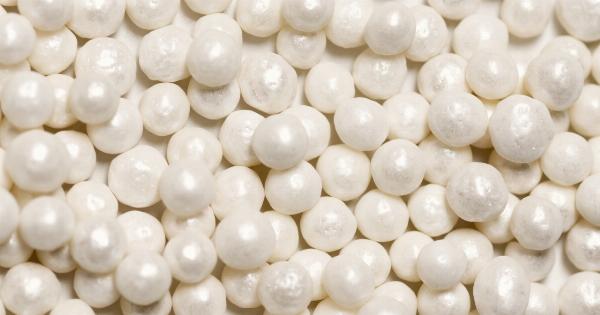Osteopenia refers to a condition in which the density of bone mineral is lower than normal but not low enough to be classified as osteoporosis. Osteopenia can increase the risk of fractures, especially in older adults.
However, there are several preventive measures that can help maintain and improve bone health. In this article, we will discuss various tips and facts to prevent osteopenia and promote strong and healthy bones.
Understanding Osteopenia
Osteopenia is often considered a precursor to osteoporosis, a condition characterized by weak and brittle bones. While not everyone who has osteopenia will develop osteoporosis, it is crucial to take preventive measures to reduce the risk.
Factors Contributing to Osteopenia
Several factors contribute to the development of osteopenia, including:.
- Age: As we age, our bone density naturally decreases.
- Gender: Women are at a higher risk of developing osteopenia and osteoporosis, especially after menopause due to a decline in estrogen levels.
- Genetics: Individuals with a family history of osteoporosis or osteopenia are more likely to develop these conditions.
- Dietary Factors: Inadequate intake of calcium and vitamin D can contribute to reduced bone density.
- Inactivity: Lack of weight-bearing exercise and physical activity can lead to weakened bones.
- Smoking and Alcohol: Both smoking and excessive alcohol consumption can negatively impact bone health.
Preventing Osteopenia
There are several steps you can take to prevent or manage osteopenia:.
1. Maintain a Balanced Diet
Eating a well-balanced diet is crucial for maintaining healthy bones. Include foods rich in calcium, such as dairy products, leafy green vegetables, and fortified cereals.
Additionally, incorporate foods high in vitamin D, like fatty fish and egg yolks, or consider taking a vitamin D supplement if you have limited sun exposure.
2. Get Sufficient Calcium and Vitamin D
Ensuring an adequate intake of calcium and vitamin D is essential for maintaining bone health. The recommended daily intake for adults is 1000 mg of calcium, which can be obtained through diet or supplements.
Similarly, aim for at least 600-800 IU (international units) of vitamin D per day.
3. Engage in Weight-Bearing Exercises
Weight-bearing exercises help build and maintain bone density. Activities such as walking, dancing, hiking, or weightlifting put stress on the bones, which stimulates them to become stronger.
Aim for at least 150 minutes of moderate-intensity aerobic activity each week, along with two or more days of strength training exercises targeting all major muscle groups.
4. Limit Alcohol Consumption
Excessive alcohol consumption can negatively affect bone health. Avoid consuming more than moderate levels of alcohol, which is defined as one drink per day for women and up to two drinks per day for men.
5. Quit Smoking
Smoking is detrimental to overall health, including bone health. Quitting smoking is essential for reducing the risk of osteopenia and other related conditions.
Seek support from healthcare professionals or join smoking cessation programs to increase your chances of success.
6. Assess Your Medications
Some medications, such as corticosteroids taken for prolonged periods, can contribute to bone loss. If you are taking medications that may affect bone health, discuss the potential risks and alternatives with your healthcare provider.
7. Regular Bone Density Evaluations
Regular bone density evaluations are crucial, particularly for individuals at a higher risk or those experiencing early signs of osteopenia.
These evaluations help identify any changes in bone density and assess the effectiveness of preventive measures.
8. Consider Supplemental Support
In consultation with your healthcare provider, consider whether you may benefit from taking calcium and vitamin D supplements, especially if your dietary intake is insufficient.
Your doctor can guide you on the appropriate dosage and duration for supplementation.
9. Fall Prevention
Take steps to prevent falls, as they can lead to fractures and subsequent bone loss. Ensure your living environment is free from hazards, use adequate lighting, and consider using assistive devices if necessary.
Regular exercise can also improve balance and reduce the risk of falls.
10. Stay Informed and Seek Professional Advice
It is crucial to stay informed about osteopenia and bone health. Regularly consult with your healthcare provider, who can provide personalized guidance based on your specific situation and underlying risk factors.
Conclusion
Preventing osteopenia requires a proactive approach to maintaining bone health. By following a balanced diet, engaging in regular weight-bearing exercises, limiting alcohol and quitting smoking, you can significantly reduce the risk of osteopenia.
Regular bone density evaluations and seeking professional advice are essential for evaluating your bone health and taking appropriate preventive measures. Making these lifestyle changes and adopting healthy habits will not only help prevent osteopenia but also promote overall well-being and enhance your quality of life.































